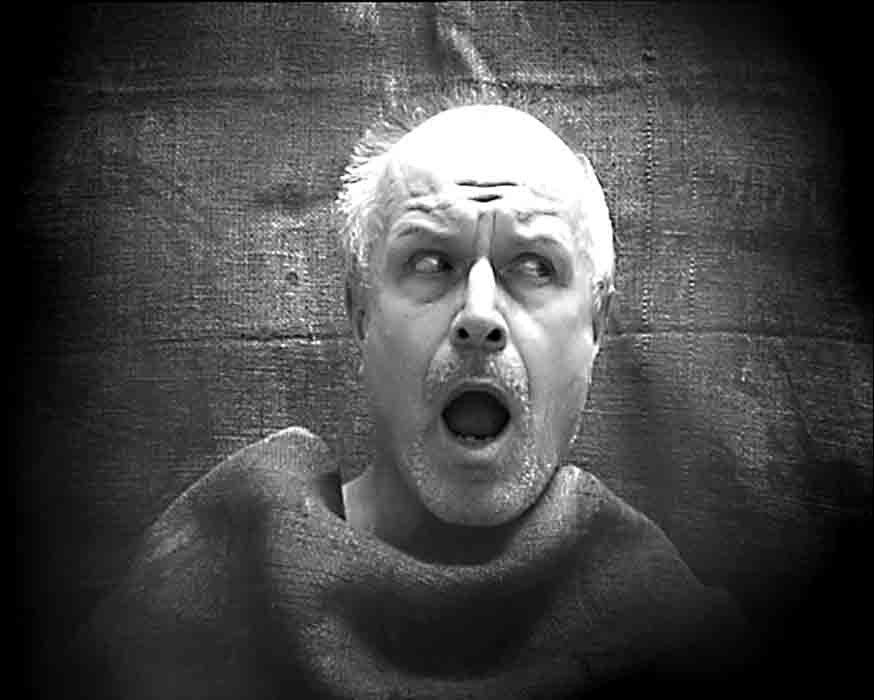In the year of the new millennium, Wilfried Agricola was reborn. Struck down by art terrorists in 1998, the artist formerly known as Wilfried re-emerged from his creative death as video activist, curator, exhibition designer, festival director and media maestro. To mark his reincarnation from mere mortal to multimedia art brand he gave himself a new identity: Agricola de Cologne.
This choice of nomenclature is perhaps as obfuscatory as faking one’s own death. In the pantheon of Roman heroes, Gnaes Julius Agricola rarely features highly, being best remembered as the man who tamed the intransigent Scots before returning home to Rome to die in his bed. Had it not been for son-in-law Tacitus’ laudatory biography The Life and Death of Agricola, the general might well have fallen out of collective memory.
Which begs the question: why would an enigmatic video artist from Germany’s fourth city choose to go by this elusively allusive nom d’arte? Far from having martial designs on Celtic climes, the artist is in fact channelling Renaissance humanist tradition. Four hundred years ago it was common for educated Germans to give their names a Classical make-over: thus the Teutonic Bauer, or farmer, becomes the latinised Agricola. So the erstwhile Bauer was the latter day humanist Wilfried, before transmogrifying into the chimerical Agricola de Cologne. As the mysterious man behind the brand helpfully explains, “‘Agricola de Cologne’ is an artist brand, as well as a brand for his art, and as such ‘Agricola de Cologne’ as a manifestation as an artist is purely virtual, representing the only true virtual artist.” Confused? Probably.
This fascination with historical inference and reappropriated identity is central to the work Agricola de Cologne is presenting as part of Meta House’s Free Your Minds Festival. A Virtual Memorial Phnom Penh 2012 is a four-day programme of unconventional film shorts and experimental video works, examining the concept of collective memory and identity in post-totalitarian countries.
The idea for A Virtual Memorial was born not in Cambodia, but in a country which couldn’t seem more distant: Latvia. This Baltic outpost may be snowier and more Slavic than Cambodia, but the countries share a similarly tragic recent past. Both are associated with the most notorious genocides of the last century: an estimated 1.5 million Cambodians died at the hands of the Khmer Rouge; Nazi-occupied Latvia saw 200,000 of its citizens murdered in concentration camps and on the frontline as conscripts. And both are only now coming to acknowledge the scale of these disasters, with Khmer Rouge history recently introduced into school curricula and the first Holocaust museum opening in Riga.
It is this grim commonality which led Agricola de Cologne to take A Virtual Memorial to both Phnom Penh and Riga. Last month, the Latvian capital became the first city to host the exhibition, which makes use of video art as well as lectures, workshops, courses, exhibitions, artist talks and discussions. Interspersing short films with interactive elements, Agricola leads participants to actively engage with A Virtual Memorial, ultimately considering “how people coming from different cultural, religious, social, political or ethnic backgrounds deal with memory and the essential questions of life”.
The questions asked by the event – how should art render history and memory? How does history affect the future self? – are reminiscent of Heideggerian ontological theory, in which a human being is born into the past and must make an effort of free will to recreate identity based on this inescapable history. Agricola de Cologne, aiming to “sensitise and activate the audience… to keep memory vivid,” asks his audiences to seize control of its collective memory, using past national identities to create a more hopeful future; power is taken from totalitarians and restored to the populace through art. Perhaps self-directed rebirth and renaming are not quite so obfuscatory after all.
A Virtual Memorial Phnom Penh will run between the 12th- 15th of the month, before moving to Warsaw and Vilnius.
WHO: Agricola de Cologne
WHAT: A Virtual Memorial Phnom Penh
WHERE: Meta House, #37 Sothearos Blvd, and sister locations around Phnom Penh
WHEN: July 12 – 15
WHY: Unconventional cinema
